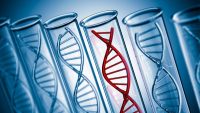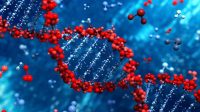Over the past 2 decades, immense research and development occurred surrounding the Human Microbiome Project to gain deeper insights on the microorganisms that reside within the human body, especially our gut. Often referred to as a ‘supporting organ’, the collection of bacteria, fungi & viruses to whom we play host, is more commonly known as the Microbiome.
Harvard Med School estimates that trillions of microscopic visitors have found a home within our bodies & a large portion of them play vital functions such as stimulation of the immune system, breaking down toxic bacteria & compounds while helping to synthesize vitamins & amino acids.
This synergy between said microbiome and our internal system is quite symbiotic, helping to maintain homeostasis, but this ecosystem is susceptible to disturbances in case of a rise in pathogenic bacteria or as collateral damage when suffering from other diseases.
Through technological advancements within the healthcare sector, scientists are now being able to discover the correlations between the presence, absence & concentration of various microbes with the onset of certain diseases in humans.
To counter such states, wherein the gut microbiota is disturbed to such a drastic or adverse extent, the importance of probiotics has risen parallelly.
Essentially, Probiotics can be defined as live microorganisms which alter the composition of our gut bacteria by crowding out and destroying inflammation causing pathogens, preventing their multiplication and maintaining & promoting the growth and sustenance of good, disease fighting bacteria.
Often ingested in the form of supplements or foods, a single dose can contain multiple strains of various healthy microbes. Common probiotic foods are:
- Yogurt
- Kimchi
- Kefir
- Sauerkraut (fermented raw cabbage)
- Tempeh (made from fermented soyabeans)
Yogurt or Curd contains Lactobacillus acidophilus which is one of the most common probiotics consumed over the world which helps regulating the Gastrointestinal Tract by helping the body break down food, absorb nutrients and help fight against diarrhoea.
Introduced by Nobel laureate Elie Metchnikoff, the concept of probiotics was displayed through a scientific paper which linked the longevity of life in Bulgarians with the consumption of fermented milk products rich in lactobacilli , thus suggesting that specific bacteria when ingested would provide certain health benefits.
ADVANTAGES OF PROBIOTICS:
- Probiotics help combat irritable bowel syndrome (IBS), a common digestive disorder, reducing gas, bloating, constipation & diarrhoea.
- Reduction in severity of allergies & Eczema.
- Boosting immune cells like the IgA-producing cells, T lymphocytes & natural killer cells thus positively stimulating the immune system.
- Help in losing weight/fat by preventing absorption of dietary fats in the intestine.
- Restoring microbial balance in the gut which can be hampered by long courses of antibiotics. Imbalance of microbiota is a.k.a Dysbiosis.
Various other advantages exist as new uses of probiotics are being uncovered each year.
Researchers are harnessing the ever-increasing power of computing & novel techniques for better understanding of these organisms.
As studies continue, one major challenge has appeared universally.
- Identification of individual & unique microbial species.
(For context, over 120 species of lactobacillus exist and over a dozen are utilized as probiotics. Similarly, a huge variety of bacteria exist & selection of the right supplement can be a tall task for an undereducated customer. Studying and comparisons can help you on to the right track but it’s crucial to understand that although probiotics may display great promise in a certain demographic, they may not have an identical effect on you.)
- Post identification, accurate association of sub-species & strains and their effects on human health is where the science gets murky. Standardization of a humongous data set of microbes which vary in populations from country to country & even individually, can pose huge trouble to solidify that a specific probiotic shall have a desired effect across demographics.
For an enriching outlook on the future of Probiotics & the Human Microbiome, join us in San Diego on the 16th & 17th of June 2022 for the 4th Annual MarketsandMarkets Next-Gen Microbiome & Probiotics Conference!
CLICK HERE TO EXPLORE & REGISTER FOR THE EVENT or reach out to us at [email protected] regarding any queries you may have.
Ayush Kanitkar
MarketsandMarkets
+91-8975985061





